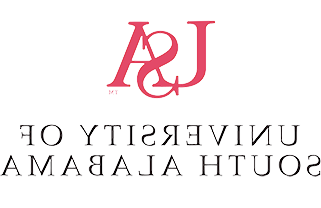
|
Policy No: 2036
Responsible Office: Research Compliance and Assurance
Last Review Date: 04/28/2022
Next Required Review: 04/28/2027
|
Authorship and Publication
1. Purpose
Authorship is an explicit way of conveying responsibility and contributing credit for intellectual work. The process of ensuring responsible authorship should occur prior to writing of the paper. 潜在的作者必须熟悉十大彩票网投平台什么是作者以及谁应该被视为作者的制度政策. Good communication clarifies roles, and minimizes potential authorship disputes. Although authorship practices differ from one discipline to another, and individual situations often require judgement, practices should adhere to this policy.
个别研究人员和学者以及联邦和私人赞助者越来越多地注意到并确定书面作品中可接受做法的偏差, including publications and grant applications. Both sponsors and whistleblowers are bringing these deviations, many constituting plagiarism, fabrication and falsification, to the attention of authors and organizations, thus increasing the importance of responsible authorship.
本政策提供了教育资源,描述了十大彩票网投平台负责任的作者和出版的基本考虑和要求.
2. Applicability
The policy covers authorship in conference proceedings, scientific journals, books, web-based publications, published scientific posters, abstracts, grant proposals, as well as other scholarly activities by University of South Alabama faculty, staff and trainees. In general, 大学有义务确保其学术成果尽可能广泛地提供,并促进开放获取原则,使公共资助的研究成果通过不受限制的在线访问获得.
3. Definitions
Not Applicable.
4. Policy Guidelines
以下原则定义了十大彩票网投平台十大彩票网投平台科学和学术出版物作者身份的政策.
4.1 Authorship
An author is an individual who has made substantial intellectual contributions to a research work. An administrative relationship, acquisition of funds, collection of data, or supervision of a research group does not constitute authorship. In NO instance should an individual be included as an “honorary” author. For attribution of authorship, a contributing individual must meet all of the following criteria:
-
- Contribute significantly to the conception, design, execution and/or analysis and interpretation of data;
- Actively participate in drafting and/or revising of the published piece of work for intellectual content;
- Approve publication of the written work when named as an author.
4.2 Lead Author
The lead author is typically the person who performed the core experiments and prepares the first draft of the manuscript. Generally, the lead author serves as the corresponding author. Specifically, the lead author is responsible for:
-
- Ensuring all authors meet the requirements for attribution of authorship;
- Providing the draft of the manuscript to each author for review and consent for authorship;
- Additionally, journals may have specific requirements governing author review and consent;
- The integrity of the work as a whole and ensuring data is accurate and reasonably interpreted;
- Ensure all authors have approved publication of the written work.
4.3 Co-Authors
出版物的共同作者负责审查和批准与他们在项目中的角色有关的部分手稿. An individual retains the right to refuse co-authorship if he/she does not satisfy the criteria for authorship.
4.4 Order of Authorship
Several different ways of determining order of authorship exist across disciplines and research groups. Such examples of authorship policies include descending order of contribution, 按字母顺序或随机顺序,把带头写稿件或做研究的人排在第一位,把最资深的贡献者排在最后. While the meaning of a particular order may be recognized in a given setting, order of authorship has no generally agreed upon meaning.
-
- The authors should decide on the order of authorship collectively;
- 资深作者可能希望在他们的手稿中详细说明每个作者的贡献,以及他们如何分配作者的顺序,以便读者能够正确地理解作者的角色;
- All authors should review and approve the manuscript before it is submitted for publications (at minimum, pertaining to their roles in the project).
4.5 Acknowledgements
对工作做出有价值贡献但不符合作者要求的个人,应承认他们对工作的贡献.
-
- 相关支持:例如,共享试剂或审阅手稿草稿,确认但不注明作者. This acknowledgement should include, as appropriate, the requirement to make research tools and data available to other investigators;
- http://grants.nih.gov/policy/sharing.htm
- Research Funding and Other Support: Acknowledgements must disclose the source(s) of support for the work, to include grant/contract/gift support, salary support if other than institutional funds, and technical or support if substantive to the completion of the project;
- A source of funds should be acknowledged only if there was an actual contribution from a supporting organization;
- 作者应该意识到在任何出版物中,无论是在文本中还是在所包含的数字/图表中都有虚假陈述. If federal funds are involved this is a violation of the Federal False Statement/False Claims Act. (31 U.S.C. §§ 3729-3733).
4.6 Prior Review by Material Providers
许多材料转让协议要求在出版或发布之前将文件或其他公开披露提交给提供商进行审查. 这种审查使提供商有机会确定适当的可获得专利的发明,并确保拟议的出版物不包含提供商的机密信息.
Office of Commercialization & 行业合作(“OCIC”):主要作者或教师导师有责任与OCIC协调,以确保遵守与拟议出版物主题直接相关的任何现有材料转让协议.
4.7 Unacceptable Authorship
以下形式的作者/写作不符合令人满意的作者标准,并且违反了本政策:
4.7.1 Guest (honorary, prestige, or courtesy) authorship is in violation e.g. inclusion based solely on prestige or affiliation of the individual. Serious consequences can arise when viewed as granting authorship out of respect or appreciation of an individual.
4.7.2 Ghost authorship/writing (e.g., lending one’s name as an author to works authored in whole by others such as industry representatives is bad practice). 商业实体代表支付报酬充当作者,而他们并没有实质性的贡献,这破坏了科学进程的完整性,也违背了学术界的价值观和原则.
4.7.3 Gift authorship (e.g. granting credit solely as an obligation or tribute to an individual who has not substantially contributed to the work).
NOTE: The International Committee of Medical Journal Editors 采用了一套被视为适用于医生和科学界的黄金标准的作者原则.
5. Procedures
5.1 Financial Conflict of Interest
作者必须充分披露任何可能构成潜在利益冲突的财务安排和外部活动, grant applications and at professional meetings. Authors should comply with the University’s Conflict of Interest and Conflict of Commitment (policy) for disclosure requirements.
5.2 Authorship Disputes
To prevent conflict, 作者归属的讨论应该在任何合作出版物的早期开发阶段引入. Individuals may seek guidance from the division/department chair and/or Dean of their school, 或教务长兼学术事务高级副校长或研究和经济发展副校长,如果作者争议无法友好解决. 指导方针,以协助避免和解决作者身份纠纷,如果作者身份纠纷无法得到友好解决.
5.3 Publications
5.3.1 Accessibility of Publications
5.3.1.1 Public Access Requirements for Funding Agencies: All NIH supported, peer-reviewed publications must comply with the NIH Public Access Policy. 手稿必须在出版日期后立即通过访问美国国立卫生研究院国家医学图书馆的PubMed Central向公众开放, or at a later time not to exceed 12 months from the date of publication. NIH-funded investigators are responsible for ensuring that evidence of compliance in included in all NIH applications, proposals, and reports. To ensure compliance, NIH Program Officials will check the citations in grant applications, proposals, or progress reports for PubMed Central Identifiers or appropriate alternatives. 理解并遵守资助其研究的任何机构的要求是作者的责任. Reference: NIH Public Access Policy.
5.3.1.临床试验的注册:国际医学期刊编辑委员会(ICMJE)和许多其他组织要求考虑临床试验的注册, any prospective, 在第一个受试者入组之前,介入临床研究必须在批准的试验注册表中进行适当的记录. The goal of this policy is to promote the public availability of a comprehensive database of clinical trials. Trial registration is the responsibility of the trial investigators or sponsors. Before commencement of a study, 作者应考虑他们希望提交研究报告的期刊是否采用了这一政策(见参考文献), Clinical Trials Registration).
5.3.2 Related Publication Practices
Good publication practices include the following:
-
-
- Include sufficient information in publications to allow others to replicate the results or validate the research;
- Redundant publication is unacceptable. This arises when multiple papers, without full cross reference, share equivalent hypothesis, discussion points, data and/or conclusions. At the time of manuscript submission, authors should disclose details of similar papers and/or abstracts. This also applies if the paper is written in a different language, as well as similar papers in press.
-
6. Enforcement
违反该政策的个人可能会受到研究副校长和/或教务长和学术事务高级副校长认为适当的纠正措施或其他制裁.
7. Related Documents
Guidance on Authorship Dispute Resolution
